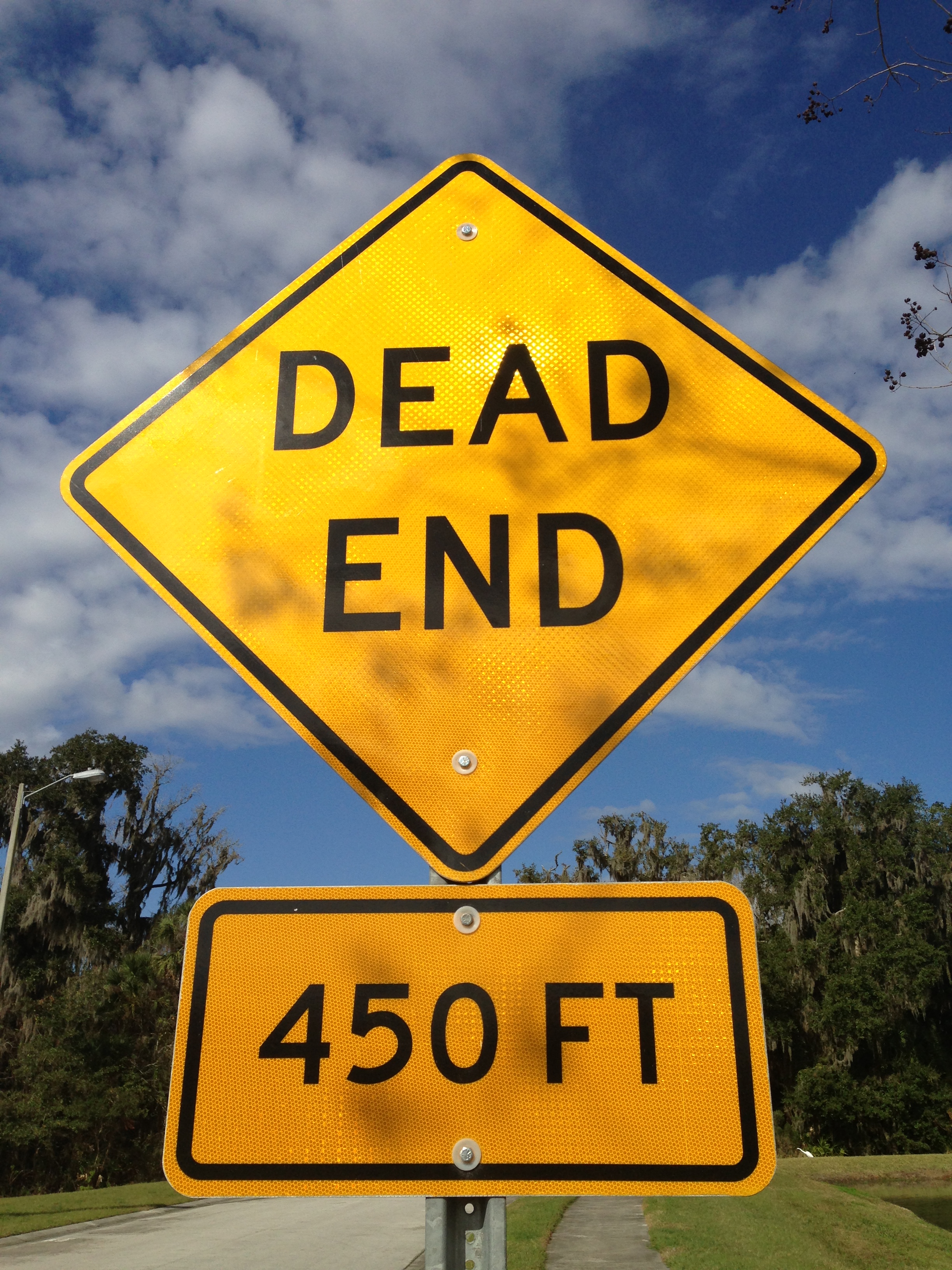Is it Appealable? July 2018 edition

Is it appealable, or a dead end? Several district court decisions from this month answer that question in different ways.
Appealable or not? The courts decide…
The immediate reaction to an adverse ruling is often “I want to appeal that!” But not all orders are immediately appealable, as several cases this month have shown. And sometimes, an order is immediately appealable even if the case continues for other reasons, and you can waive your rights to appeal if you don’t act immediately. The district courts of appeal have issued a number of decisions this month regarding appellate jurisdiction to review a trial court’s order, which usually comes down to the question “Is this a final order?” Below we’ve summarized just a few of the cases discussing finality and appealability the courts issued in July, grouping them by type of order. As always, if you have any questions regarding the finality or appealability of an order, contact us and we’d be glad to talk about your situation with you!
Orders on fees.
FCCI Commercial Insurance Co. v. Empire Indemnity Insurance Co., 2D17-1749 (Fla. 2d DCA July 13, 2018)[.pdf]
FCCI intervened in a pending case against its insureds after the trial court disqualified the attorney FCCI had retained on its insureds’ behalf and awarded attorneys’ fees to Empire based on that attorney’s misconduct. When FCCI appeared, the trial court imposed the award of those fees upon FCCI based on its finding that FCCI had directed the disqualified attorneys’ actions. FCCI appealed that order.
On appeal, Empire argued the appellate court did not have jurisdiction over the appeal, presumably because there were proceedings still pending in the trial court. The court disagreed, holding “Not only is the order awarding Empire attorney’s fees an executable judgment against FCCI concluding a portion of the litigation ancillary to Empire’s ongoing litigation against [FCCI’s insureds and other defendants], . . . but FCCI’s limited intervention solely for the purpose of addressing fees demonstrates that the conclusion of the attorney fees proceeding ended judicial labor as to FCCI,” citing Florida Rule of Appellate Procedure 9.110(k)(review of partial final judgments) and a number of cases.
Yampol v. Turnberry Isle South Condominium Association, Inc., 3D17-2752 (Fla. 3d DCA July 5, 2018)[.pdf]
After dismissing a case in the trial court, both parties (Yampol and Turnberry) moved for attorney’s fees. The trial court entered an order that denied Turnberry’s fees and granted Yampol entitlement to fees. Upon a motion for reconsideration, the trial court changed its mind, granting Turnberry entitlement to fees and denying Yampol’s motion. Yampol appealed.
Turnberry moved to dismiss the appeal, arguing that the order was not yet final because it found only entitlement, and not amount, as to its award of fees. The appellate court determined “[t]he issue before us in this appeal is whether an order that grants one party’s entitlement to fees and denies the other party’s entitlement to fees ins an appealable final order.”
Ultimately, the court ruled the order was appealable because an “order denying a party’s claim for entitlement to attorney’s fees . . . is an appealable final order,” even if an order granting attorney’s fees as to entitlement but not to amount is not appealable. The trial court ended all litigation as to Yampol’s fees in its second order so the order was final and appealable as to Yampol. This is a great example of how the same order can be final and appealable for one party but not another.
Orders to show cause.
Torres v. Lefler, 2D17-2741 (Fla. 2d DCA July 13, 2018)[.pdf]
The trial court ordered Mr. Torres to show cause within ten days why he should not be sanctioned for repeatedly filing frivolous lawsuits, failing which, sanctions would be imposed. Mr. Torres filed a notice of appeal before the ten days was up. The appellate court dismissed the appeal from that order, holding that the trial court merely reserved jurisdiction to impose sanctions and thus the order was not final or appealable.
Amended temporary orders while an appeal is pending.
Duryea v. Bono, 2D17-4314, 2D17-4422 (consolidated) (Fla. 2d DCA July 13, 2018)[.pdf]
In this family law appeal, the trial court rendered a Temporary Order for Timesharing on October 27, 2017.  Duryea filed a notice of appeal. Then the trial court rendered an Amendment to the Temporary Order for Timesharing on November 2, 2017, substantively modifying the October 27, 2017, order. Duryea filed another notice of appeal.
The appellate court affirmed the October 27, 2017, order. However, it held that the November 2, 2017, order was a nullity because it was entered while the appeal from the prior order was pending and was substantive in nature. Consequently, the court remanded with directions to vacate the November 2, 2017 order.
Orders granting partial summary judgment incorporating injunctive relief.
Woodfield Community Association, Inc. v. Ortiz, 2D18-341 (Fla. 2d DCA July 13, 2018)[.pdf]
The Ortizes sued their homeowner’s association. In count 1, they sought a declaration that parking restrictions were void and unenforceable. They moved for partial summary judgment, which the trial court granted. The court declared prior fines void and enjoined the homeowner’s association from imposing further fines. The association appealed.
The appellate court recognized that “Generally, orders that merely grant partial summary judgment, such as the one before us, are considered nonfinal, nonappealable orders.” “However, Florida Rule of Appellate Procedure 9.130(a)(3)(B) provides us jurisdiction to review the portion of the order enjoining the association from enforcing the recorded declaration.” The appellate court dismissed all other portions of the association’s appeal that did “not pertain to injunctive relief,” without prejudice to raising those issues in a later final appeal.
Timeliness of Notice of Appeal.
Elmouki v. Department of Transportation, 1D18-0715 (Fla. 1st DCA July 9, 2018)[.pdf]
The Commercial Motor Vehicle Review Board issued a letter rejecting Elmouki’s challenge to a citation he received while operating a commercial motor vehicle. The letter was dated January 18, 2018, but included a timestamp showing it was filed with the clerk of the Department of Transportation on January 17, 2018. Elmouki filed his notice of appeal on Monday, February 19.
The appellate court held that the 30-day time period for Elmouki to file his notice of appeal ran from the date the letter was rendered, which was the date it was filed with the Department. Consequently, the time for Elmouki to file his notice of appeal expired on Friday, February 16, and Elmouki’s February 19 notice was untimely.
The appellate court dismissed the appeal without prejudice to Elmouki petitioning the Review Board to vacate and reissue the letter so that he could appeal.
In rem vs. personal jurisdiction.
Patel v. Wilmington Savings Bank, FSB, 5D17-1900 (Fla. 5th DCA July 6, 2018)[.pdf]
The trial court denied the Patels’ motion to quash constructive service of process, ruling that it had in rem jurisdiction. The Patels appealed, presumably pursuant to Florida Rule of Appellate Procedure 9.130(a)(3)(C)(i), which authorizes an appeal from a non-final order that determines the jurisdiction of the person.
However, the trial court did not determine the jurisdiction of the person, it only ruled on jurisdiction in rem, or over the property at issue. Consequently, the appellate court held that rule 9.130(a)(3)(C)(i) did not provide a non-final appeal from the trial court’s order and thus dismissed the appeal.
Mootness.
Mitchell v. Brogden, 1D16-5849 (Fla. 1st DCA July 16, 2018)[.pdf]
Mitchell appealed a stalking injunction that expired by its own terms while the appeal was pending. “Nonetheless, [the court held,] we cannot dismiss the appeal as moot because ‘collateral legal consequences flowing from such an injunction outlast the injunction itself.'” (citation omitted).
Preservation by motion for rehearing.
Mahoney v. Mahoney, 1D17-2071 (Fla. 1st DCA July 9, 2018)[.pdf]
Former Husband waived arguments for appeal regarding lack of written findings on trial support and some arguments regarding the cut-off date for the identification of a retirement plan as a marital asset by failing to include those arguments in a trial court motion for rehearing.
Looking for more?
Check out our past blog posts on rendition, timing of your notice of appeal, and post-judgment tolling motions, and check out our Florida Bar Journal article on how trial court motions for rehearing affect preservation on appeal. Or scroll through the blog for more!


